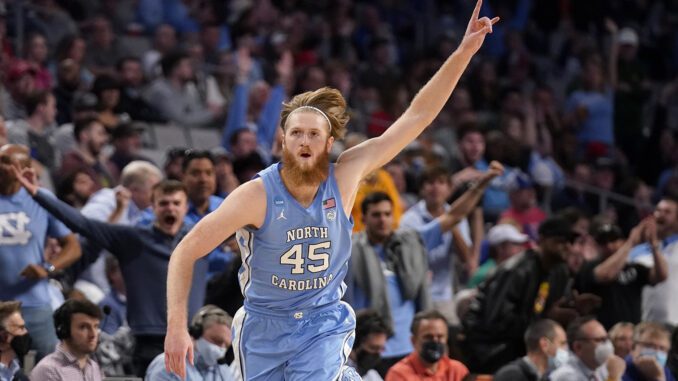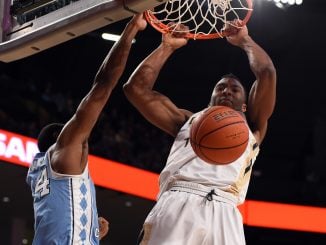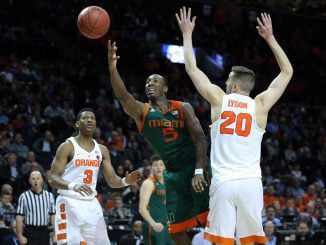
Many are saying the transfer portal and paying college athletes NIL money for use of their name, image and likeness are the worst things to ever hit college basketball.
Despite obvious downsides, the transfer portal and NIL might wind up saving college basketball and preserve the ACC’s predominance in the process.
For the past decade, Duke fans in particular and to some extent, UNC fans, have been grousing about all of the “one-and-done” superstars who come to college for one year on their hop-skip-and-a-jump to the NBA. In reality, only a handful of superstars ever left college nationwide in any given year since 2010. When compared to the days when no superstar such as Lew Alcindor (Kareem Abdul-Jabbar); Pete Maravich or David Thompson could leave early for the NBA, the college game has been diminished exponentially.
Every team has lost a few great players to the NBA after a season or two which has really hurt teams such as Wake Forest and NC State. It is hard enough to compete with Duke and Carolina even if their stars stay four years, much less one.
If you believe in the free market, freedom of choice and equal treatment under the law, the transfer portal and NIL inadvertently might have just saved college athletics.
The transfer portal took full flight during the COVID pandemic. It ostensibly was designed to give upperclassmen the chance to move to a new team without sitting out a year under previous restrictions. What it created, along with extensions of eligibility due to the lost COVID season of 2020, was a free-for-all market for talented players such as Brady Manek (UNC) and ACC player of the year Alondes Williams (Wake Forest) who left Oklahoma and not only prospered but excelled on their new teams.
Both previously unheralded players significantly enhanced their chances to be drafted in the first round of the NBA with guaranteed contracts. What could be more free-market American than that?
College coaches have always been able to break their contract; ditch their treasured recruits at the drop of a hat ― and a big fat new contract ― and not sit out a year. There was no symmetry to the player/coach relationship.
Now there is.
On top of the transfer portal, the NCAA now allows all athletes the opportunity to capitalize on their fame and be paid for their “name, image or likeness” if it is plastered on jerseys, posters or TV ads. There’s already rumors of an $8 million NIL QB “fund” being formed at the University of Tennessee to offer to high school senior Arch Manning if he attends his uncle Peyton Manning’s alma mater.
While “cash payments under the table” from a booster who owned a lot of used car dealerships was considered illegal in 2021, those same payments from that very same used car dealer can front millions for a NIL fund legally for a college superstar in the future.
As one veteran lobbyist in DC used to say when he wanted a law changed: “It ain’t illegal if it is legal!”
Athletes in the past, particularly those who came from humble beginnings and backgrounds, were faced with a Hobson’s choice: stay trapped in a college program they might not like or go pro early, sign an agent; lose college eligibility and try to make some money for themselves and their family with no guarantee of making a team and getting a contract.
No violin virtuoso was ever forced to stay in college if they were on a music scholarship. They could go “pro” and play at Carnegie Hall the next day if they wanted and still complete their college education.
NIL gives the not-quite Zion Williamson-level talented player the option to stay in college; make a few thousand or even hundreds of thousands of dollars; get more experience and exposure at high-profile programs such as Duke or Carolina and not be relegated to the NBA developmental G league and play for the Fort Wayne Mad Ants where maybe 1000 people will ever see them play.
Playing in college and in March Madness with some NIL money in their pocket has to be more fun than riding the bench in the G league or overseas.
The opportunity to turn NIL into a colossal cesspool of unethical alumni booster involvement is immense and needs to be addressed. But the transfer portal when combined with NIL might be the best thing to happen to college athletics in decades.



